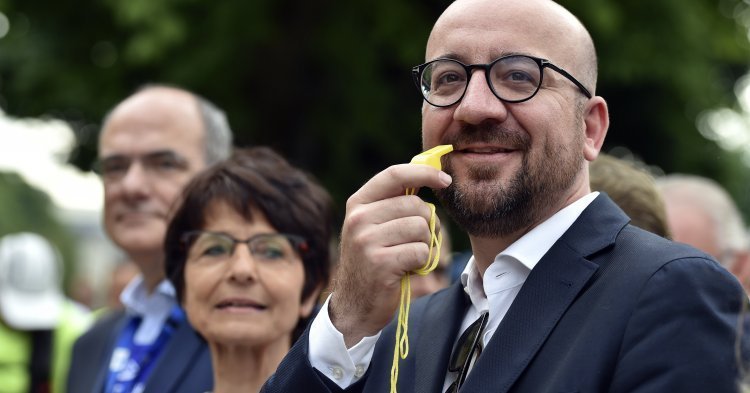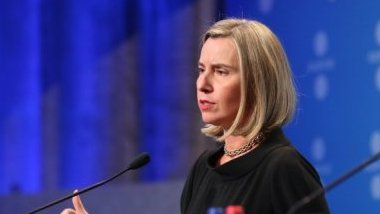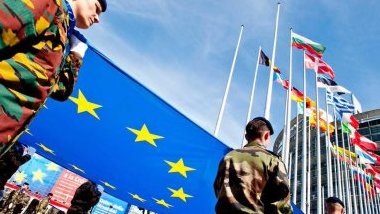Angela Merkel says yes to an “intervention force”
On 3 June, German Chancellor Angela Merkel officially supported the proposal of her French counterpart Emmanuel Macron, aiming to establish a military force at a European scale. This new contingent would take the form of an “intervention force”, whose objective would be to act in external operations. It would integrate multiple European armies, compelling them to finally work together.
Despite Brexit, the UK would be a part of it - therefore, properly speaking it would not be a force attached to the EU. “Our commitment to the security of this continent is unconditional”, a diplomatic source told Les Echos, the French newspaper. The choice isn’t illogical: faced with an increasingly unreliable American ally and the loss of influence that Brexit represents, the UK seeks to avoid this loss of influence as far as possible.
But the most surprising move undoubtedly came from the other side of the Rhine, with Germany’s choice to join this force. “I am in favour of Emmanuel Macron’s proposal for an intervention force”, Angela Merkel declared on Frankfurter Allgemeine Sonntagszeitung. At the same time, she nuanced her statement: “However, such an intervention force, with a common strategic culture, must be integrated into the structure of cooperation on defence policy”. “European cooperation in the field of defence is very important. From the 180 weapons systems that currently coexist in Europe, we must achieve a situation similar to the United States, where there are only around 30 weapons systems.”
In a country where military matters remain very sensitive, Angela Merkel wanted to specify that the German army, acting within the contingent, would stay under the command of the Bundestag, and not the government. She also added that “it would not participate in all missions”. “This means a lot to Germany which is here taking steps that would have been absolutely unthinkable just a while ago”, explains France Inter’s international columnist Bernard Guetta. According to the journalist, this move is caused by “both Donald Trump who shocked Germany by acting upon his threat to tax European imports and, above all, the results of Italian elections which forced the Chancellor to hear the French call for a European awakening”.
“Belgium’s responsibility is overwhelming”
The project of European defence is, however, not only resting on the shoulders of Germany and France. Against all expectations, Belgium will also have an essential role to play in the upcoming months. The country will namely have to proceed with its modernisation of fighter jets and replace its fleet of old American F-16’s. At the moment, it has to judge between various offers, including Uncle Sam’s F-35’s and French Dassault Rafales.
Beyond technical and financial considerations, and long-term economic effects, the aeroplanes chosen by the Belgian federal government will have to fulfil the operational demands of the Belgian army, all the while assuring the best possible performance.
In a joint op-ed, economist Bruno Alomar and Senator Cédric Perrin from the French right-wing party Les Républicains write that “with this choice, Belgium will send a clear message about what it is, where it is positioned, and what the common thread is for the future it wants to draw”. In other words, Brussels will have to choose between the Atlanticism of the NATO on the one hand, and the European project on the other.
“To retain a non-European solution could not be interpreted otherwise than as a retraction of the European project”, the authors warn. “It would be a major turning point for Belgium, the beating heart of European institutions which has always known how to play a much more important role in the EU than what its economy or population would initially suggest.” While Germany initiates the relaunch of European defence, “we cannot shy away from saying that Belgium’s responsibility is overwhelming. Belgium’s choice touches all Europeans, at a moment when European defence - stuck for a long time - benefits from a new kind of harmony of wills, and when the project for a Future Combat Air System is at stake.” “Belgium is preparing for its decision influencing nothing less than the future of European combat aircraft, the spine without which any European defence policy is not possible”, the two specialists conclude.
The decision on the replacement of the European fleet could therefore not be taken hastily. It is important for Belgium, evidently, but above all for the survival of the European project that is more exsanguine than ever. Politics is about symbols: not to choose the Rafales would send a disastrous symbol to European citizens and governments, coming from a founding member of the EU that would no longer believe in its continent’s chances to have a weight in global affairs.






Follow the comments: |
|
